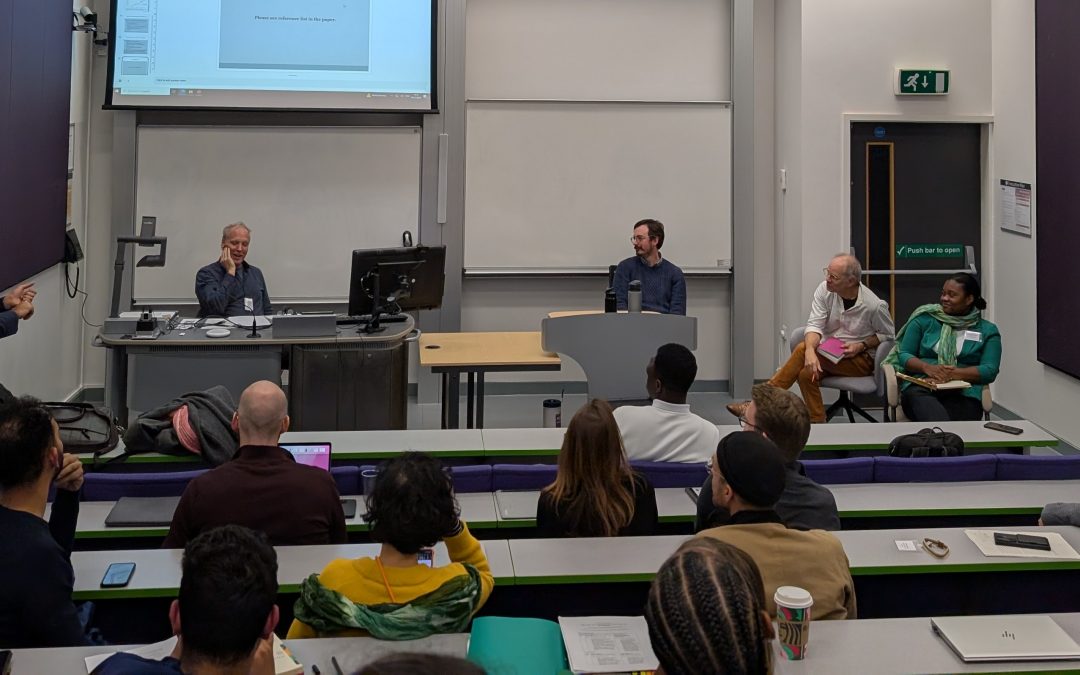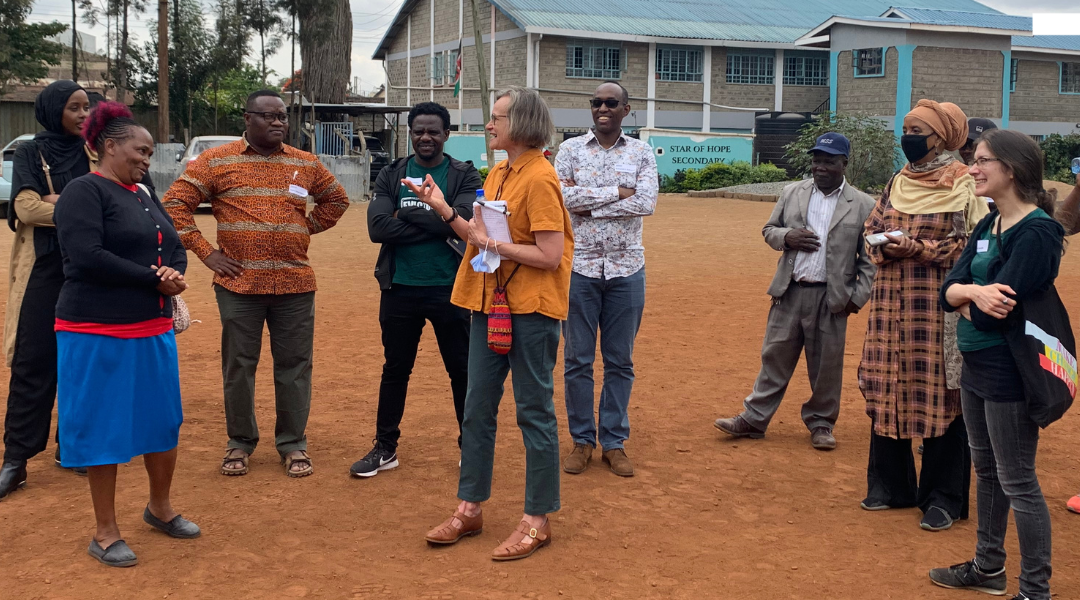
Reflecting on post-PhD research dissemination
By Epiphania Kimaro
Doing my PhD at the Global Development Institute gave me invaluable skills and opportunities, including the post-PhD research dissemination fund award. This award was an opportunity but also a challenge to share my research findings with participants and diverse stakeholders, which supports my broader efforts to explore the practical utility of my research. My research focused on the people and organisational aspects of ICT4D, where I worked with several digital social enterprises and technology non-profit organisations in East Africa, to understand how the organisational context may enable or hinder outcomes of ICT4D projects.

Bridging Theory and Action: Pragmatist-Critical Realism in Development Studies
When it comes to tackling real-world problems, researchers often find themselves choosing between two big philosophical approaches: positivism, which focuses on hard facts and objectivity, and constructivism, which highlights how people shape their reality. Both approaches have strengths, but also big weaknesses. This has left a gap in development studies, where action and change are as important as understanding the problems.

What is the city but the people? New documentary from the Social Homes for Manchester coalition
In late 2024, community reporters from the Social Homes for Manchester coalition began filming with production company On Our Radar to create a documentary exposing the crisis in social rent housing in the city of Manchester and highlighting their role establishing a new Commission focused on accelerating delivery of sustainable homes for social rent.

British Academy International Fellowships 2025 open for applications
We are delighted that the British Academy International Fellowships 2025 are now open for applications. The University of Manchester is especially keen to sponsor applicants from the global South.

Structural Transformation and Late Development in the 21st Century: Is the Lewis Model Still Relevant?
by Mahtab Uddin, PhD candidate, GDI, University of Manchester
In 1954, Arthur Lewis published a paper that set out his famous Dualistic Development Model, arguing that developing economies could foster capitalist growth by employing surplus labour from the subsistence sector. This intervention arrived at a critical juncture in human history. The world was recovering from the Second World War, many countries were emerging out of colonial regimes, achieving their first independence in centuries, and geopolitical dynamics were shaped by the tussles between capitalism vs. communism.

Development Studies Association Conference 2025 – Call for Papers Open
The Development Studies Association (DSA) is currently accepting paper proposals for its upcoming annual conference. Taking place at the Centre for Development Studies, University of Bath as a hybrid event between 25th and 27th June 2025, this year’s conference theme is “Navigating crisis: Dangers and opportunities in development” – providing an excellent opportunity for scholars to grapple with our unstable and unsettling times.
As ever, a number of academics within GDI have co-convened or helped with organising panels and workshops for the event (listed below). If you’re interested in submitting a paper to present at this year’s conference, you can view the full list of panels here. You’ll also find more information about DSA2025, including key dates and practical information, on the DSA’s website.

GDI Digest: Conceptualising and Defending the Future
By Louisa Hann
It’s the beginning of a new year – a time when many of us are looking to the future. Whether you’re trying to stick to a resolution or counting down the days until spring, January is often charged with a combination of renewal, resolve, and trepidation.
If you’re leaning more towards anxiety than optimism this year, you’re not alone. The early 2020s have proved distinctly rocky at a global scale thanks to rising authoritarianism, new and emerging health crises, escalating geopolitical rivalries, and – perhaps most worryingly – intensifying climate breakdown. As Gindo Tampubolon explains in a recent blog, trust in climate science can have a detrimental effect on our mental health, with those in highly vulnerable countries feeling especially anxious.

Evidence and Experience: UN Decade of Healthy Ageing around the World
by Dr Gindo Tampubolon (Reader in Global Health, GDI) and Dr Elia Maggang (Honorary Fellow, Lincoln Theological Institute)
This year marks the mid-point of the decade and the global health initiative known as the UN Decade of Healthy Ageing. Led by the World Health Organization (WHO) in collaboration with other UN organisations, the Decade aims to improve the lives of older people, their families, and the communities in which they live. At the end of 2024, the WHO invited the University of Manchester’s Gindo Tampubolon and Elia Maggang to join a meeting of experts in life course and healthy ageing to examine progress towards such aims and advise on whether a mid-course correction is necessary.
The occasion prompted both academics to reflect on current evidence and the experiences of ageing in both high-income and developing countries.

Lessons from Africa – for Manchester
By Diana Mitlin
A recent conference on African Urbanism has provided a useful space for me to reflect on what the African experience has brought to my work and that of my colleagues. This has included academic scholarship, professional and policy engagement and activism. Given their potential to improve development in Manchester and the role the University plays in this, two lessons are immediately worth sharing.

Leadership for development as a catalyst for transformations
By academic staff members of the Manchester- Melbourne Masters in Leadership in Development
